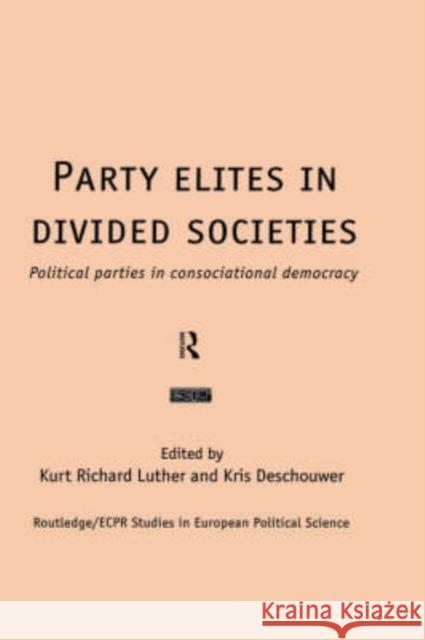Party Elites in Divided Societies: Political Parties in Consociational Democracy » książka
Party Elites in Divided Societies: Political Parties in Consociational Democracy
ISBN-13: 9780415201278 / Angielski / Twarda / 1999 / 312 str.
The stability of divided societies often depends on whether the elites of rival subcultures are willing and able to engage in compromise, as opposed to confrontation. This was demonstrated in 1968 by Arend Lijphart's seminal work on consociational democracies, or societies characterized by both subcultural segmentation and elite accommodation. This volume offers a comparative analysis of such societies 30 years on. Contributors use a combination of Lijphart's model of consociational democracy and late-1990s literature on political parties to examine the pivotal role played by political parties within and between divided socities. A comparative framework is advanced for the analysis of this role, then applied in turn to the cases of Austria, Belgium, the Netherlands, Switzerland and Israel. This is followed by comparative chapters and the editors conclude by underlining the findings of the analysis 30 years on from Lijphart's work. This study highlights the nature and amount of change in consociational democracy and the extent to which it has been promoted or hindered by the behaviour of party.











